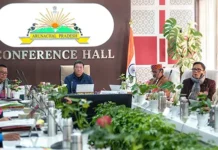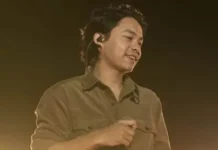[ H Sharma ]
Three visually impaired students from the Donyi Polo Mission School for the Hearing & Visually Impaired, Itanagar, passing the 2017 Class X board examinations is a landmark in the history of rehabilitation of differently-abled children in Arunachal Pradesh.
Toku Mary from Palin, and Switzer Taggu and Ree Koyu from Pasighat were the three who passed the board examinations and set an example.
This also leads to a strong need for upgrading the school to higher secondary level in the larger interest of blind children to continue their higher education in their home state.
Twelve other children of the school are going to appear for the Class X board examinations this year.
Disability is generally linked with poverty. Most such children belong to rural areas, and require free education to be part of the main stream society. Parents often neglect and deprive their children from receiving higher education outside the state owing to economic hardship.
The differently-abled children are individual human beings just like anyone else with independent personalities, dreams, aspiration, interest and skills. They have the right as well as the potential to lead successful, productive and happy lives with dignity and relative self-reliance, just as much as anyone else.
Rehabilitation is not an end in itself but is a means of enabling a person with disabilities to reach the optimum level of functioning which allows them to contribute as active members of the community.
With this motto, the institution with the vision of founder Chairman Gegong Apang is proceeding ahead steadily to evolve a multi-pronged strategy for the preservation of the basic rights of the differently-abled to make their lives more meaningful.
Every child – whether able or disabled – has an equal right in the society.
With humble beginnings, the school for the hearing impaired children established in 1990 and the school for blind children in 2008 are committed to providing education, training and rehabilitation to the hearing and visually impaired.
As per the 2011 census, Arunachal Pradesh homes 26,734 disable persons, out of which, 9665 have hearing or speech impairment, and 5652 visually impaired people. This covers 60% of the total disable population of the state and the constructive rehabilitation of this major group is a matter of concern.
In this context, there is a need for the state government, philanthropic citizens and leading NGOs to come forward to evolve a strategy to enable the blind and hearing impaired to receive higher education in their home state itself. (The contributor is Principal of DPM School for the Hearing & Visually Impaired)




